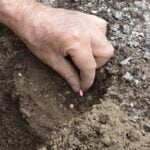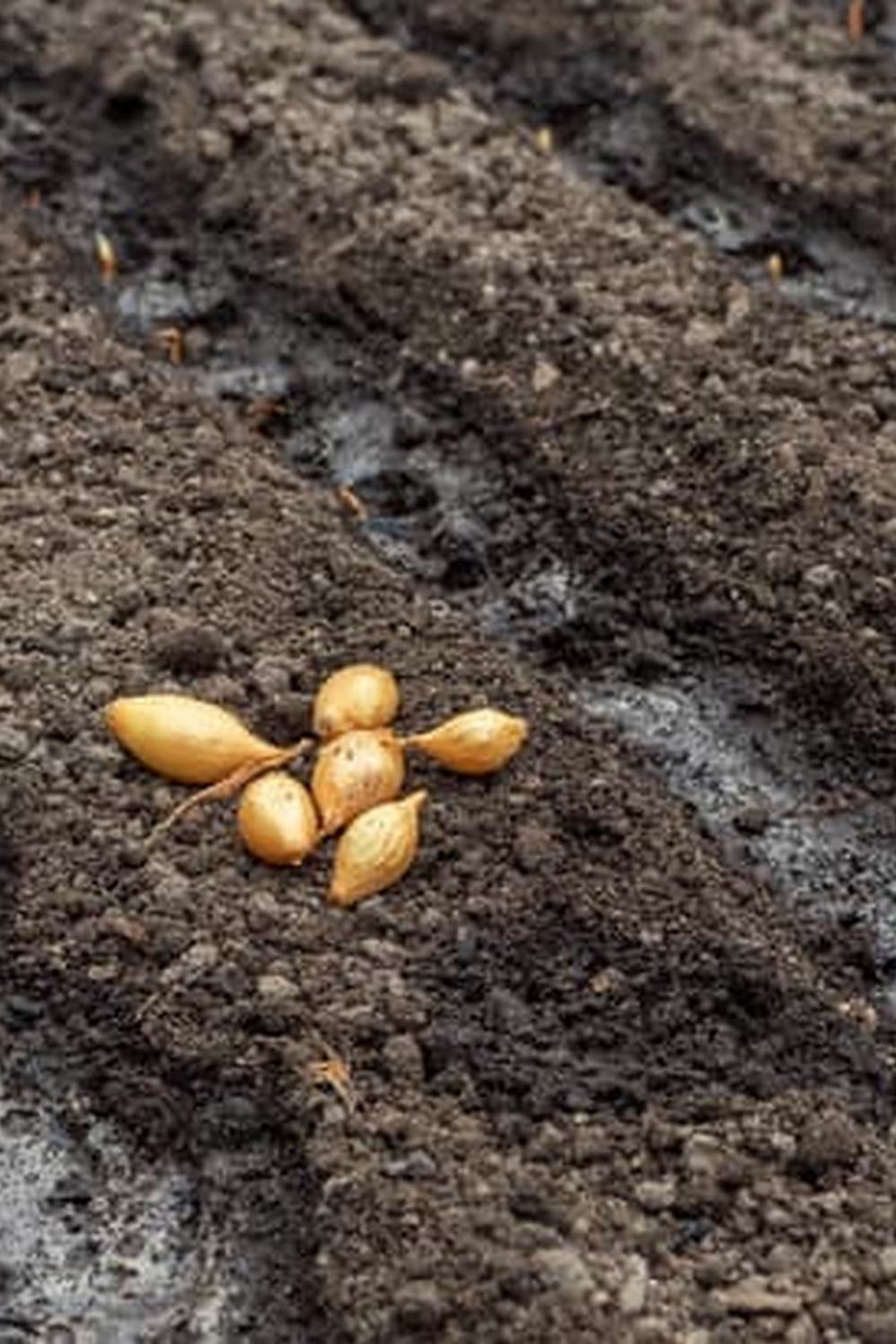Phoenix, Arizona is known for its hot and dry climate, making vegetable gardening a unique challenge for residents. With the right approach, however, it is possible to grow a successful and bountiful garden in this desert environment. Understanding the climate and soil conditions in Phoenix is crucial for anyone looking to start a vegetable garden in the area.
The weather in Phoenix can have a significant impact on the success of vegetable gardening. The extreme heat and low humidity levels can make it difficult for certain plants to thrive, while the alkaline soil composition also presents its own set of challenges. In this section, we will explore how these factors can affect vegetable gardening and provide tips on how to work with them to achieve a productive garden.
From selecting the right vegetables to preparing the soil and implementing proper watering techniques, there are many considerations that must be taken into account when starting a vegetable garden in Phoenix. By understanding the climate and soil conditions unique to this region, gardeners can make informed decisions that will lead to a flourishing vegetable garden despite the challenges posed by Phoenix’s environment.
Selecting the Right Vegetables
When it comes to vegetable gardening in Phoenix, selecting the right vegetables is crucial for a successful harvest. The hot and dry climate of Phoenix presents unique challenges for growing vegetables, so it’s important to choose varieties that can thrive in these conditions.
Understanding Your Climate
Before selecting the vegetables for your garden, it’s important to understand the unique climate of Phoenix. With scorching temperatures and low humidity, it’s essential to choose heat-tolerant and drought-resistant vegetables. Some vegetables that typically do well in this type of climate include tomatoes, peppers, eggplant, squash, and beans.
Choosing Heat-Tolerant Varieties
Look for vegetable varieties specifically bred for hot climates. For example, when choosing tomatoes, look for “heat-set” varieties that can set fruit even in extreme temperatures. Similarly, select pepper varieties known for their heat tolerance such as jalapenos or Anaheim peppers.
Drought-Resistant Options
In a desert climate like Phoenix, water conservation is critical. Consider planting drought-resistant vegetables such as okra, sweet potatoes, and Swiss chard. These vegetables require less water compared to other varieties and are better suited for the arid conditions of the region.
By choosing the right vegetables that are well-suited to the hot and dry climate of Phoenix, you’ll increase your chances of a successful vegetable garden. Do some research on heat-tolerant and drought-resistant varieties to ensure a bountiful harvest in your vegetable gardening in Phoenix endeavours.
Preparing the Soil
When it comes to vegetable gardening in Phoenix, one of the most crucial steps is preparing the soil. The hot and dry climate, as well as the specific soil conditions in this region, can pose unique challenges for gardeners. However, with the right approach, you can create a nutrient-rich environment that will support healthy and thriving plants. Here are some tips for preparing and enriching the soil for your vegetable garden:
1. Test the Soil: Before you begin any soil preparation, it’s essential to test the pH and nutrient levels of your soil. You can purchase a DIY soil testing kit or send a sample to a local agricultural extension service for analysis. This will provide valuable information about the current state of your soil and help you determine what amendments may be necessary.
2. Amend with Organic Matter: In Phoenix’s sandy desert soils, organic matter is essential for improving texture and fertility. Compost, well-rotted manure, and other organic materials can be added to the soil to increase its water retention capacity and enrich it with essential nutrients. Aim to add 2-3 inches of organic matter to your garden beds and work it into the top 6-12 inches of soil.
3. Mulch for Protection: Once you’ve prepared the soil and planted your vegetables, applying a layer of mulch can help maintain moisture levels and protect against erosion in the desert climate. Organic mulches such as straw or wood chips also break down over time, further enriching the soil.
By following these tips for preparing and enriching the soil in your vegetable garden, you’ll be setting yourself up for success in growing healthy and productive plants despite the challenging conditions of vegetable gardening in Phoenix. With attention to proper soil preparation, your garden will have a strong foundation for producing an abundance of fresh, nutritious vegetables throughout the year.
Watering and Irrigation
When it comes to vegetable gardening in Phoenix, one of the most critical factors to consider is proper watering and irrigation. With the desert climate bringing hot and dry weather, it is essential to ensure that your vegetable garden receives adequate moisture to thrive. Understanding the best practices for watering your garden can make a significant difference in the success of your crops.
In the desert climate of Phoenix, water conservation is crucial. It is important to utilize efficient watering techniques such as drip irrigation or soaker hoses to deliver water directly to the roots of your vegetable plants, minimizing water waste through evaporation.
Additionally, incorporating mulch in your garden can help retain soil moisture and reduce water usage. By implementing these practices, you can maintain a healthy vegetable garden while also conserving water, which is especially important in an arid environment like Phoenix.
Furthermore, proper timing of watering is key in vegetable gardening in Phoenix. The best time to water your vegetable garden is early in the morning or late in the evening when evaporation rates are lower. This allows the plants to absorb the moisture they need before the heat of the day sets in. By following these best practices for watering and irrigation, you can support a thriving vegetable garden that can withstand the challenges of the desert climate in Phoenix.
| Best Watering Practices | Benefits |
|---|---|
| Use drip irrigation or soaker hoses | Minimizes water waste through evaporation |
| Incorporate mulch | Retains soil moisture and reduces water usage |
| Water early in the morning or late evening | Allows plants to absorb moisture before intense heat sets in |
Protecting Against Heat
In Phoenix, the intense heat and sun can pose a challenge for vegetable gardening. However, with the right strategies and precautions, it is possible to protect your vegetables and ensure a successful harvest.
Shade Structures
One effective way to protect your vegetables from the extreme heat in Phoenix is by providing shade. Consider installing shade structures such as pergolas or shade cloth to create a cooler environment for your plants. Positioning these structures strategically can also help in reducing the overall temperature around your vegetables.
Mulching
Mulching is another valuable method for protecting against heat. By applying a layer of organic mulch, such as straw or wood chips, you can help regulate soil temperature, retain moisture, and prevent evaporation. This is especially important in Phoenix’s dry climate where water is scarce and temperatures soar during the summer months.
Plant Selection
Choosing the right vegetables that are well-adapted to hot and arid conditions is crucial for successful vegetable gardening in Phoenix. Opt for heat-tolerant varieties such as tomatoes, peppers, eggplants, and okra. These vegetables have developed natural defenses against high temperatures and are better equipped to withstand the harsh conditions of the desert climate.
By implementing these strategies and being mindful of the impact of intense heat on your vegetable garden, you can protect your plants from the challenging weather conditions in Phoenix while still enjoying a bountiful harvest.
Pest Control
Vegetable gardening in Phoenix comes with its own set of challenges, one of which is dealing with common pests and insects that can affect the health and yield of your crops. One of the most common pests in this area is the whitefly, which can quickly infest a vegetable garden and damage plants. Other pests to watch out for include aphids, spider mites, and caterpillars. It’s important to be proactive in pest control to ensure a successful harvest.
To combat these pests, it’s essential to regularly monitor your vegetable garden for any signs of infestation. Early detection can help prevent the spread of pests and minimize damage to your crops. Additionally, using natural pesticides such as neem oil or insecticidal soaps can effectively control pest populations without harming beneficial insects or the environment.
Furthermore, implementing companion planting techniques can also help naturally repel pests in your vegetable garden. For example, planting marigolds alongside your vegetables can deter nematodes and other harmful insects. Creating a diverse ecosystem within your garden can also attract natural predators like ladybugs and lacewings, which feed on common garden pests. By incorporating these pest control strategies into your vegetable gardening routine in Phoenix, you can maintain a healthy and thriving garden all year round.
| Pest | Control Method |
|---|---|
| Whitefly | Regular monitoring and use of natural pesticides such as neem oil or insecticidal soaps |
| Aphids | Companion planting with marigolds and attracting natural predators like ladybugs and lacewings |
| Spider Mites | Early detection and use of natural pesticides to control infestations |
Seasonal Planting Guide
When it comes to vegetable gardening in Phoenix, understanding the climate and its impact on your garden is crucial. With the hot and dry weather, as well as the unique soil conditions in Phoenix, it’s important to select vegetables that can thrive in these conditions. This means choosing heat-tolerant, drought-resistant varieties that can withstand the desert climate.
To ensure a successful vegetable garden in Phoenix, it’s essential to prepare and enrich the soil properly. With the sandy and alkaline soil commonly found in this area, adding organic matter such as compost or peat moss can improve soil structure and fertility. Additionally, incorporating mulch into the soil can help retain moisture and regulate temperature, which is beneficial for vegetable gardening in such a hot environment.
Watering and irrigation are critical components of vegetable gardening in Phoenix, especially due to the arid climate. It’s important to water deeply but infrequently to encourage deep root growth and prevent water evaporation. Drip irrigation systems are highly recommended for delivering water efficiently and effectively to your vegetable garden. Using mulch around your plants can also help conserve moisture and reduce water usage.
By following these tips for understanding the climate of Phoenix, selecting the right vegetables, preparing the soil properly, and implementing efficient watering practices, you can ensure a successful year-round vegetable garden in this challenging but rewarding environment.
Community Resources
In conclusion, vegetable gardening in Phoenix presents its own set of unique challenges and considerations due to the hot and dry climate. By understanding the specific weather and soil conditions in Phoenix, selecting the right vegetables, preparing the soil properly, and implementing appropriate watering and irrigation techniques, gardeners can still cultivate a successful vegetable garden in this desert environment.
In addition to these basic strategies, it’s important for novice and experienced gardeners alike to seek out local resources and organizations that can offer support and guidance. Community resources such as local gardening clubs, extension offices, farmers’ markets, and seed libraries can provide valuable knowledge, networking opportunities, and access to locally adapted seeds and plants specifically suited for vegetable gardening in Phoenix.
By connecting with these community resources, gardeners can not only improve their skills but also contribute to the promotion of sustainable food production within Phoenix. Through collaboration with like-minded individuals and organizations, vegetable gardening enthusiasts can help create a more resilient and interconnected local food system while enjoying the bountiful rewards of growing their own fresh produce right in the heart of the desert.
Whether it’s sharing tips on pest control or participating in community gardens, there are many ways that individuals can get involved in supporting and promoting vegetable gardening in Phoenix for the benefit of all.
Frequently Asked Questions
When Should I Start My Vegetable Garden in Phoenix?
In Phoenix, it’s best to start your vegetable garden in late February or early March. This allows enough time for the vegetables to grow before the intense summer heat sets in.
What Vegetables Are Good to Grow in Phoenix Arizona?
Some of the vegetables that are good to grow in Phoenix, Arizona include tomatoes, peppers, cucumbers, zucchini, squash, green beans, and herbs like basil and oregano. These vegetables thrive in the warm climate and long growing season.
What Vegetables Do Well in Arizona Heat?
Vegetables that do well in Arizona’s heat include okra, sweet potatoes, eggplant, melons, and different varieties of peppers (like jalapenos and bell peppers). These plants have adapted to withstand high temperatures and thrive in the hot desert climate.

If you’re looking to get into vegetable gardening, or are just looking for some tips on how to make your current garden better, then you’ve come to the right place! My name is Ethel and I have been gardening for years. In this blog, I’m going to share with you some of my best tips on how to create a successful vegetable garden.





